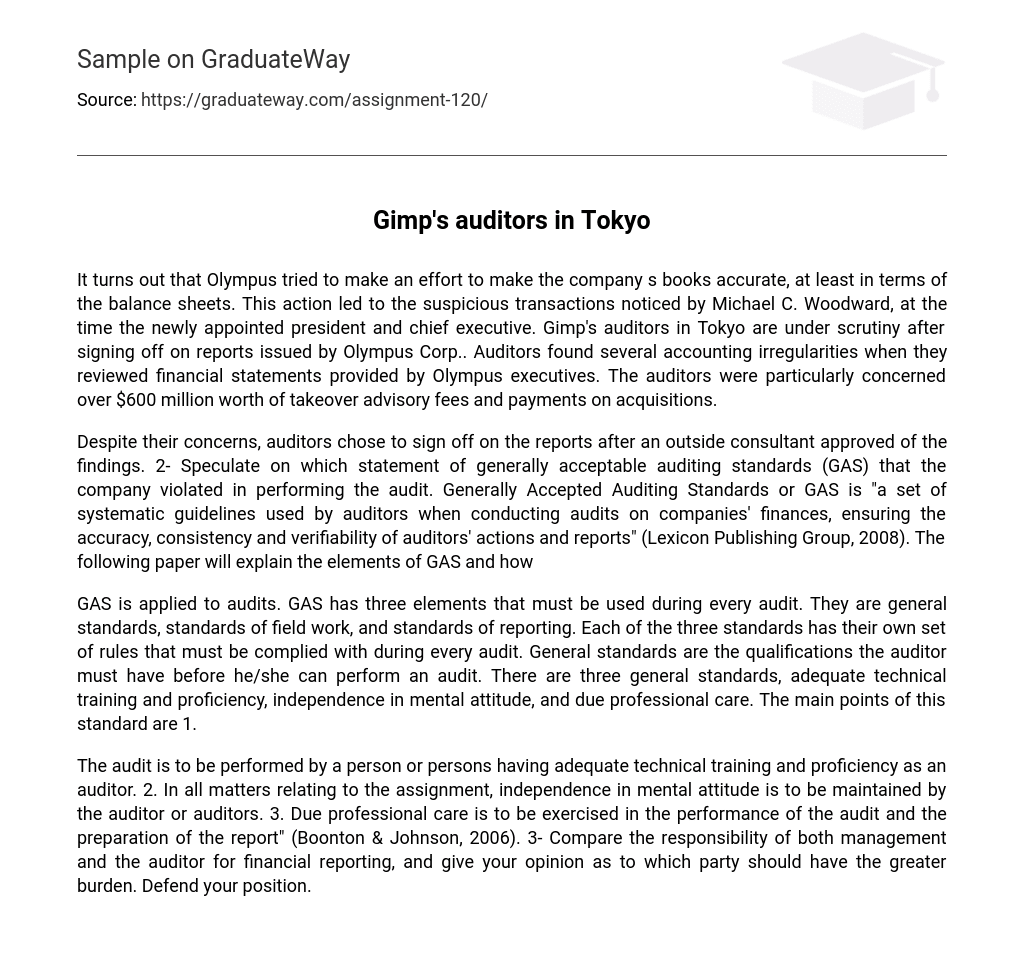It turns out that Olympus tried to make an effort to make the company s books accurate, at least in terms of the balance sheets. This action led to the suspicious transactions noticed by Michael C. Woodward, at the time the newly appointed president and chief executive. Gimp’s auditors in Tokyo are under scrutiny after signing off on reports issued by Olympus Corp.. Auditors found several accounting irregularities when they reviewed financial statements provided by Olympus executives. The auditors were particularly concerned over $600 million worth of takeover advisory fees and payments on acquisitions.
Despite their concerns, auditors chose to sign off on the reports after an outside consultant approved of the findings. 2- Speculate on which statement of generally acceptable auditing standards (GAS) that the company violated in performing the audit. Generally Accepted Auditing Standards or GAS is “a set of systematic guidelines used by auditors when conducting audits on companies’ finances, ensuring the accuracy, consistency and verifiability of auditors’ actions and reports” (Lexicon Publishing Group, 2008). The following paper will explain the elements of GAS and how
GAS is applied to audits. GAS has three elements that must be used during every audit. They are general standards, standards of field work, and standards of reporting. Each of the three standards has their own set of rules that must be complied with during every audit. General standards are the qualifications the auditor must have before he/she can perform an audit. There are three general standards, adequate technical training and proficiency, independence in mental attitude, and due professional care. The main points of this standard are 1.
The audit is to be performed by a person or persons having adequate technical training and proficiency as an auditor. 2. In all matters relating to the assignment, independence in mental attitude is to be maintained by the auditor or auditors. 3. Due professional care is to be exercised in the performance of the audit and the preparation of the report” (Boonton & Johnson, 2006). 3- Compare the responsibility of both management and the auditor for financial reporting, and give your opinion as to which party should have the greater burden. Defend your position.





